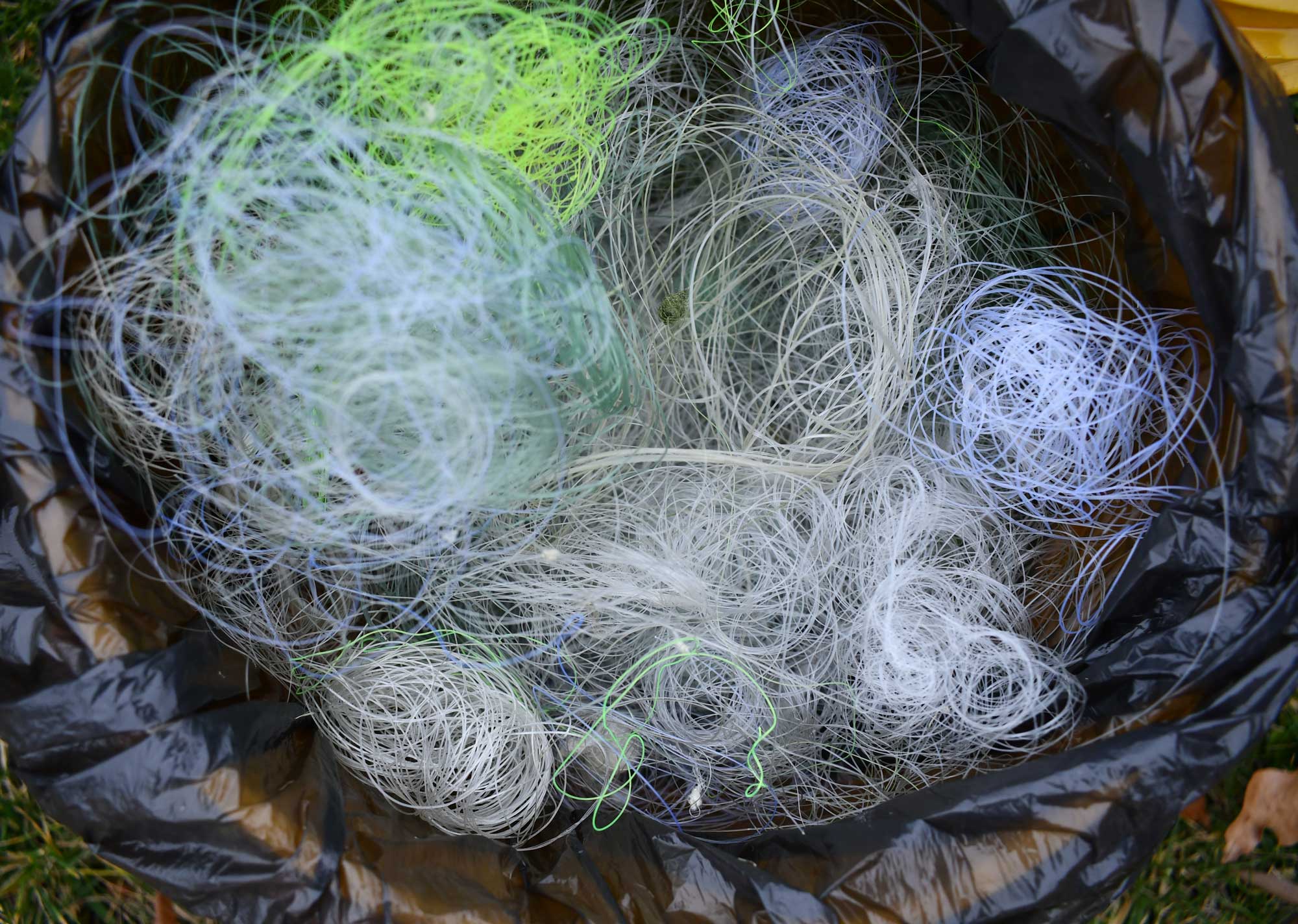Recycle your fishing line to avoid injuring or killing wildlife

As temperatures warm and the spring, summer and fall fishing season gets underway, the Forest Preserve District is reminding anglers to recycle their fishing line to avoid harming wildlife.
To assist with this process, the District has installed monofilament recycling tubes at fishing locations. The tubes are emptied by volunteers and at the end of each year the fishing line is sent off for recycling to Spirit Lake-Iowa-based Berkely Conservation Institute.
“When monofilament ends up in the environment, it runs a high risk to our wildlife,” said Em Wilcher, the Forest Preserve’s recreation coordinator. “Recycling fishing line is a hands-on way to engage in conservation and care for our animals. We have 30 fishing line recycling containers across 10 preserves, including popular fishing destinations such as Monee Reservoir, Whalon Lake and Hidden Lakes.”
Each year, Forest Preserve staff come across animals that are injured or killed by fishing line.
“We’d love to see a season where no animals are harmed or killed,” Wilcher said. “It’s a goal we’re pursuing, and the public can help us get there by fishing responsibly and disposing of line in our recycling containers. Taking the extra step to deliver the monofilament to the tubes posted around the preserves also keeps it out of landfills where it can still be a risk to wildlife.”
Preserve users should not put garbage, including trash or dog poop bags, in the fishing line recycling containers. Doing so makes the job for volunteers who empty the tubes more difficult and limits container space for those who attempt to recycle their fishing line.
If you have fishing line that needs to be disposed of and there are no recycling containers nearby, Wilcher said you should cut the line into four-inch sections and double-bag it before disposal.
Fishing line also can be sent directly to the Berkley Conservation Institute, which has recycled more than 9 million miles of fishing line since 1990.
The fishing line is melted down into small plastic pellets that are used to create new plastic products. They are not used to make new fishing line. Fishing line cannot be recycled through your curbside recycling program because it is a high-density type of plastic, and these require a special recycling process.
Wilcher said Forest Preserve volunteers extracted around 3 pounds of fishing line from the recycling containers in 2023, and the line was sent to Berkley in the winter of 2024.
"One pound of monofilament measures out to roughly 3.7 miles," she said. "Based on our collections, it’s fair to say we’ll send in over 10 miles of line to recycle this year!"
